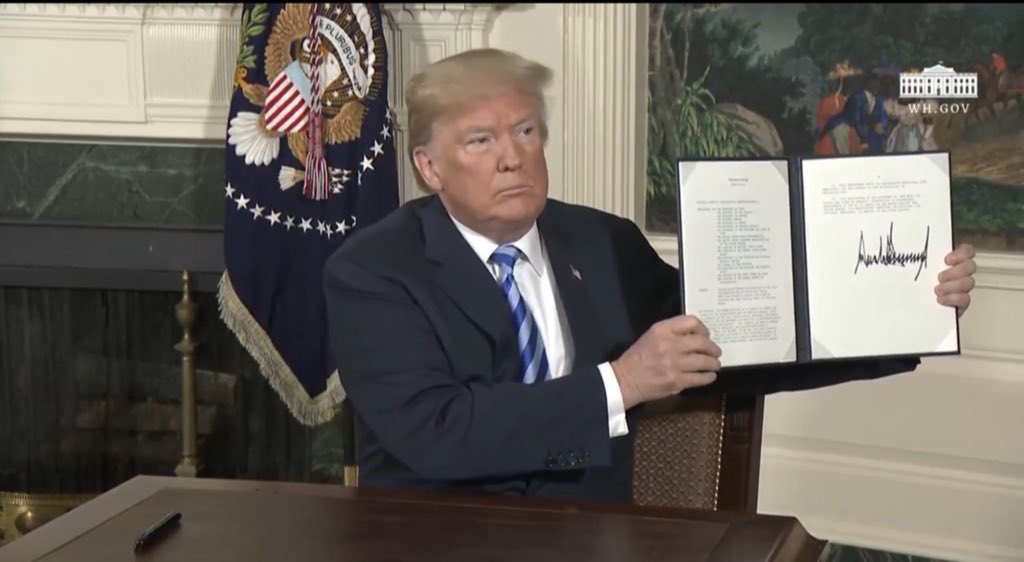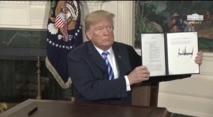The president's manoeuvring means Washington's focus shifts from keeping the government open to immigration and Trump's campaign promise to build a wall across the US-Mexico border, while creating the possibility of a constitutional crisis over the emergency declaration.
"President Trump will sign the government funding bill, and as he has stated before, he will also take other executive action, including a national emergency, to ensure we stop the national security and humanitarian crisis at the border," spokeswoman Sarah Sanders said.
The funding bill has passed the Senate, with a large majority of 83-16, and the House of Representatives, 300-128. Local media reported Trump will sign it on Friday.
Meanwhile, top Republicans have questioned the constitutionality, wisdom and precedent of Trump declaring a national emergency.
Democrats say there is no emergency at the border, often noting illegal immigration is down from peaks, and have slammed the move.
Declaring an emergency would be a "lawless act, a gross abuse of the power of the presidency and a desperate attempt to distract from the fact that President Trump broke his core promise to have Mexico pay for his wall," Speaker of the House of Representatives Nancy Pelosi and Senate minority leader Chuck Schumer said.
A national emergency declaration would certainly be challenged in the courts. Pelosi said she was weighing her options on legal action, but civil liberty groups have already said they would file motions.
The Democrats control the House and may reject Trump's declaration, forcing a vote in the Senate, where some Republicans may be uncomfortable supporting a national emergency.
Already several key lawmakers from the centre-right party have indicated their disapproval, warning it would undermine the constitutional role of Congress.
"Let's all pray that the president will have wisdom to the sign the bill so government doesn't shut down," Republican Senator Chuck Grassley, the most senior member of the upper chamber, said before voting on the bill took place and Trump made his intentions clear.
The last shutdown - which ended in January after 35 days, making it the longest on record - left 800,000 federal workers in the lurch and caused key agencies to cease services. Trump forced the shutdown over funding for the wall.
A key component of Trump's 2016 election campaign was his harsh rhetoric on immigration, including about Muslims and people from Latin America.
The funding bill, as proposed by a bipartisan group of lawmakers, does not include the 5.7 billion dollars Trump wants to expand a wall Mexico border, but does allocate 1.375 billion dollars for physical barriers along the south-west frontier.
Republicans have been trying to sell the low number as a down payment on future wall construction, with Trump repeatedly pledging that no matter what happens in Congress he will keep building the wall. His source of funding, however, is an open question.
Meanwhile, CNN reported that Trump will on Friday announce he is using executive action to secure 8 billion dollars in funding for the wall from "administration funding sources." A White House official was unable to say where the funding would come from or if the move could withstand a legal challenge.
"President Trump will sign the government funding bill, and as he has stated before, he will also take other executive action, including a national emergency, to ensure we stop the national security and humanitarian crisis at the border," spokeswoman Sarah Sanders said.
The funding bill has passed the Senate, with a large majority of 83-16, and the House of Representatives, 300-128. Local media reported Trump will sign it on Friday.
Meanwhile, top Republicans have questioned the constitutionality, wisdom and precedent of Trump declaring a national emergency.
Democrats say there is no emergency at the border, often noting illegal immigration is down from peaks, and have slammed the move.
Declaring an emergency would be a "lawless act, a gross abuse of the power of the presidency and a desperate attempt to distract from the fact that President Trump broke his core promise to have Mexico pay for his wall," Speaker of the House of Representatives Nancy Pelosi and Senate minority leader Chuck Schumer said.
A national emergency declaration would certainly be challenged in the courts. Pelosi said she was weighing her options on legal action, but civil liberty groups have already said they would file motions.
The Democrats control the House and may reject Trump's declaration, forcing a vote in the Senate, where some Republicans may be uncomfortable supporting a national emergency.
Already several key lawmakers from the centre-right party have indicated their disapproval, warning it would undermine the constitutional role of Congress.
"Let's all pray that the president will have wisdom to the sign the bill so government doesn't shut down," Republican Senator Chuck Grassley, the most senior member of the upper chamber, said before voting on the bill took place and Trump made his intentions clear.
The last shutdown - which ended in January after 35 days, making it the longest on record - left 800,000 federal workers in the lurch and caused key agencies to cease services. Trump forced the shutdown over funding for the wall.
A key component of Trump's 2016 election campaign was his harsh rhetoric on immigration, including about Muslims and people from Latin America.
The funding bill, as proposed by a bipartisan group of lawmakers, does not include the 5.7 billion dollars Trump wants to expand a wall Mexico border, but does allocate 1.375 billion dollars for physical barriers along the south-west frontier.
Republicans have been trying to sell the low number as a down payment on future wall construction, with Trump repeatedly pledging that no matter what happens in Congress he will keep building the wall. His source of funding, however, is an open question.
Meanwhile, CNN reported that Trump will on Friday announce he is using executive action to secure 8 billion dollars in funding for the wall from "administration funding sources." A White House official was unable to say where the funding would come from or if the move could withstand a legal challenge.









 Home
Home Politics
Politics











